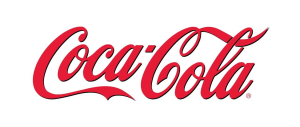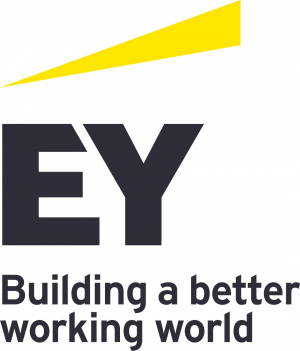How This Co-Founder Emerged From Communist Rule and Launched a $30 Million Business
23.08.2017Company: Y SOFT Corporation, a.s.
In 2000, Vaclav Muchna started a print management company in the Czech Republic. Here's how he overcame austere attitudes towards entrepreneurship--leftover from Stalinist ideology.
Václav Muchna remembers November 17th, 1989 like it was yesterday. It marked the beginning of the Velvet Revolution, a month-long period of upheaval that ended communist rule in the former Czechoslovakia.
Muchna mostly remembers that it was a day he wasn't required to go to school. At the age of nine, he preferred to stay home and tinker with computers or write code. Muchna never intended to become an entrepreneur, though, largely because the profession had been illegal in the Soviet Union for several decades, since the beginning of communist rule in 1917.
"The word 'entrepreneur' didn't really exist back then, because you couldn't have a private property during communist time," he recalls. "The government would confiscate all the assets, and make it government [property]."
Under communism, "what we used to say is, everybody is equal, some people are more equal than others," he adds.
Today, Muchna is the co-founder and CEO of a print management firm called Y Soft. The company brought in $30 million in sales last year, up from $20 million in 2014. Headquartered in Brno, the second-largest city in the Czech Republic, it serves roughly 115 Fortune 500 businesses in 120 countries.
Founded in 2000, Y Soft sells print software that helps businesses better manage their workflows. The software operates with traditional printers, scanned documents, and some 3D printers, and typically costs clients between $800 and $1,000. Using the Y Soft, employees can control when and where sensitive documents get printed -- or processed -- by scanning a security badge.
The company expanded to the U.S. in 2009, with the acquisition of Xpert Image, a local software firm with revenues in the "low hundreds of thousands." Muchna saw promise in the North American market's sheer size, as well as in the potential partners. He now estimates that 7 percent of his business comes from the U.S., thanks in large part to a renewed partnership with Xerox, which bundles Y Soft products with its Xerox Secure Print Manager Suite.
Challenges of going from communism to capitalism
Austere attitudes towards entrepreneurship notwithstanding, Muchna faced more practical challenges in building Y Soft. The company, which initially consisted of just a few, part-time developers, made virtually no money for five years. (Unable to afford an apartment, Muchna slept in a sleeping bag at the office for the first year.)
When Y Soft finally landed its first business client--a local hospital that needed help managing its medical records--Muchna sought funding from a rare angel investor, who charged him a massive 40 percent interest rate on a $100,000 loan. At the time, he had no choice but to accept the terms. VC firms didn't exist in the Czech Republic at the time, and banks were wary to lend to private companies--especially those dealing in software, a sector that was virtually unheard of. (Y Soft ultimately profited enough from the deal to pay back the loan in four months.)
Muchna also faced some heavy, ideological challenges in expanding the company beyond the Czech Republic. He wasn't accustomed to marketing his firm as being "better" or "different" from competitors; his culture had historically prided the collective over individualism. After expanding to the U.S., however, he soon realized that he needed to do a better job of communicating his firm's goals.
"Everywhere I went, it was always the same question: 'How are you different?', 'Why should I care?' I wasn't ready for that," said Muchna. "Differentiation isn't necessarily a bad thing in Europe, but we just don't think that way."
So the company hired a CMO from Silicon Valley, who led a messaging workshop for the key stakeholders. Ultimately, in asking himself how Y Soft would stand apart, Muchna got the idea to start making software that could map onto 3D printers.
As the stigma against entrepreneurship--leftover from Stalinist thinking-- began to recede, Y Soft gained a stronger foothold on its native turf, where Western competitors weren't paying much attention. O, er time, one of the biggest challenges Y Soft has faced has been dealing with competition stateside.
Competition in the U.S. market
Y Soft still has a long way to go. It's currently on track to do about $60 million in revenue by 2020 -- when U.S. clients could account for one quarter of its business -- but it's up against such native giants as PaperCut, and Nuance Communications. PaperCut alone counts around 50,000 business clients, including tech giants HP and Samsung. Nuance, meanwhile, brought in more than $1 billion in sales last year.
"The U.S. is incredibly big, and we're just scratching the surface here," he concedes. Muchna's native Czech Republic has a population of just around 10 million, by contrast. He's hopeful, though, that the Xerox contract will boost the company's growth rate in the U.S.
It also helps that Y Soft is devoting resources to selling management software for 3D printers -- a roughly $2 billion industry, according to IBIS World. For the time being, the company is working primarily with schools to help manage printer workflow for items to be used in class projects, tests or homework. Muchna sees 3D printing as a major opportunity for the firm, because the companies are vertically oriented (i.e., offer printers to companies in different industries with specific needs.)
Despite having operations in 120 global markets, Muchna insists on keeping Y Soft headquartered in the Czech Republic. He hopes to set an example for local entrepreneurs.
"I love my country," he says. "The trips to Silicon Valley and the Bay Area, and [the experience of] working with the world's largest companies completely changed my view of what's possible. The sky is the limit. I didn't have this approach before."
"I want to be an example for local entrepreneurs that you can do global business from Central and Eastern Europe," he adds.
Tags: Finance | Business Development | IT |







